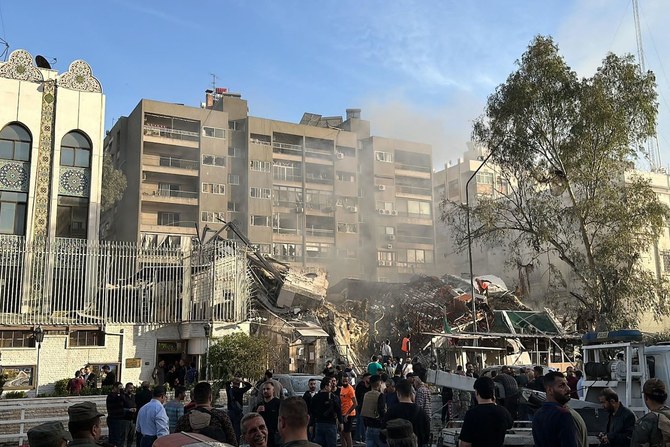NEWS
Attack on Iranian Embassy: What could Iran be up to as revenge?

Would Iran play the waiting game after its embassy in Syria was attacked or will they be seeking vengeful actions on perpetrators?
Iranian officials, including two prominent military commanders, were reportedly killed in an airstrike on an embassy complex belonging to Iran in Damascus on Monday. Speculation is rife that Israel may be behind the attack.
Experts are regarding this incident as one of the most significant strikes on Iranian targets since the assassination of Qassem Soleimani, a top Iranian commander, in Baghdad in 2020.
While Iran may be reluctant to engage in direct conflict with Israel and the United States, analysts suggest that Tehran may feel compelled to respond to the attack.
Israel has a history of targeting Iranian and Iranian-allied interests in Syria as part of its strategy to counter perceived security threats. The recent escalation in attacks follows Hamas’ assault on Israel on October 7, resulting in significant casualties and prompting a fierce Israeli response in Gaza.
Although Israel has not claimed responsibility for the embassy complex attack, it argues that the target was a “military building of Quds forces,” a unit of the Iranian Revolutionary Guards responsible for foreign operations.
The incident has heightened tensions, with Iran viewing it as an attack on its sovereignty under international law.
Retaliation from Iran against Israel is considered unlikely due to the potential for escalation and the risk of drawing the United States into a regional conflict.
Nonetheless, Iran’s Foreign Minister Hossein Amir-Abdollahian has held the US accountable for the attack, emphasizing the need for accountability.
The attack also raises concerns about potential repercussions in the region, including a possible end to the de-escalation between Iran and the US. Analysts suggest that Iran may no longer adhere to a “truce” with the US, potentially putting American troops in the Middle East at risk.
While Iran has previously retaliated against US interests, the extent of its response this time remains uncertain. However, any escalation in hostilities could have significant implications for regional stability and draw Western nations, including the US, into the conflict.
Despite threats of retaliation from Hezbollah, Iran’s most potent proxy in the region, experts doubt its willingness to engage in a full-scale war with Israel. Other Iranian-backed militias in the region may pose limited threats to Israel due to their geographical distance.
In response to past attacks on Iran, Israel has bolstered security at its embassies abroad. However, analysts caution against further escalation, warning of the potential for a wider conflict that could further isolate Israel on the world stage.